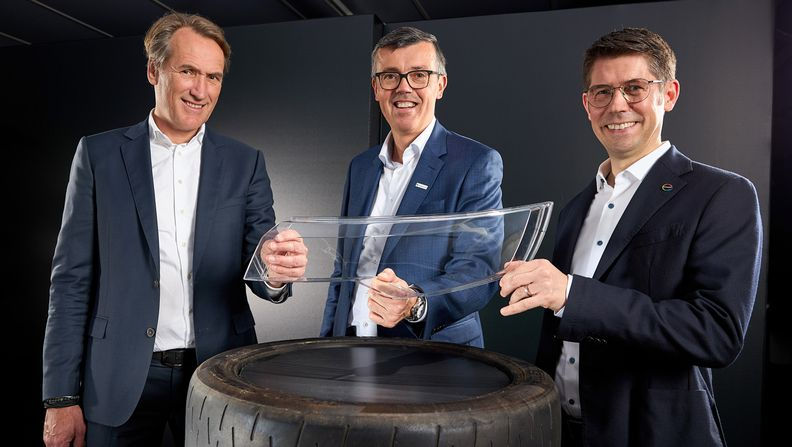Neste, Borealis, and Covestro are closing the loop for the automotive industry through a new collaboration
Finland-based Neste and Austria’s Borealis are chemically recycling tyres at the end of life into base chemicals that Germany-based Covestro then uses to produce polycarbonate.
The group is taking tyre pyrolysis oil (TPO) as the basis for its collaboration. The TPO has been sourced from Scandinavian Enviro Systems, who are in the process of upscaling to a full sized pyrolisis plant at Uddevalla in Sweden.
Neste then refines the TPO into a high-quality raw material for chemicals and polymers manufacturing.
Neste supplies Borealis with the refined pyrolysis oil. Borealis then processes it into base chemicals phenol and acetone, which Covestro finally uses to produce polycarbonate. The material is then used to make new car parts like headlamps and radiator grills, with recycled content being attributed via an ISCC-plus certified mass-balance method.
“Circularity requires cooperation, and this cooperation with our partners Neste and Borealis is testament to the possibilities at our disposal,” said Guido Naberfeld, senior vice president, head of sales and market development mobility at Covestro. “We are creating options to turn old tyres into new car parts again. With that, we are supporting our automotive customers and addressing an increasingly prominent question discussed across the value chain: How to match high-performance materials with recycled content? Projects like this can be the answer.”
The companies said in a statement that the potential to scale-up these types of developments should be considered when setting ambitious targets for future EU regulations, such as the End-of-Life Vehicles Regulation. That regulation mandates, for example, that 25 per cent of plastic used to build new vehicles is recycled.
“This project can serve as a blueprint when it comes to establishing circularity in the field of plastics in cars,” said Jeroen Verhoeven, vice president value chain development for polymers and chemicals at Neste. “It shows how low-quality waste materials can be turned into very high-quality plastics. This is good news for the polymers and automotive industries as well as for the environment,” he concluded.




















